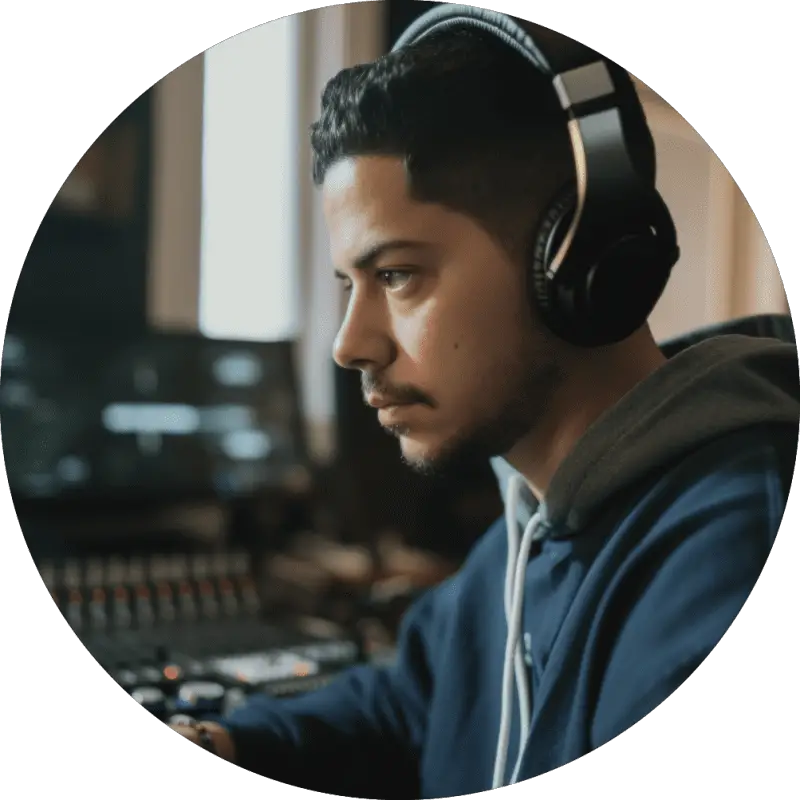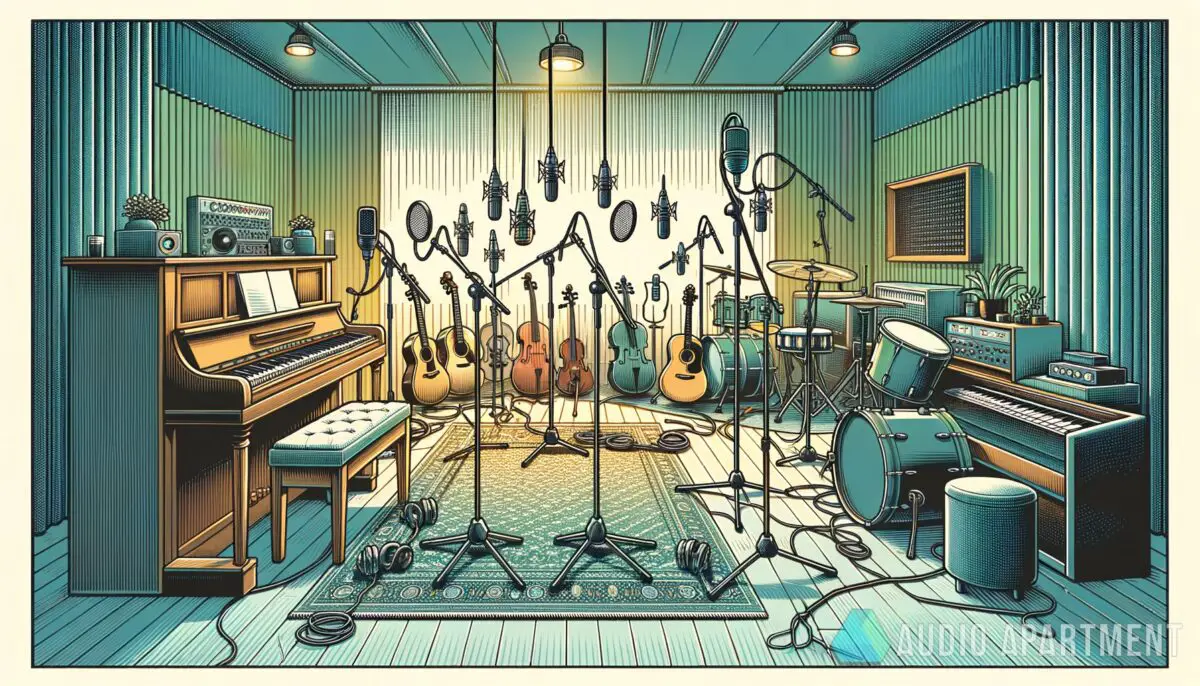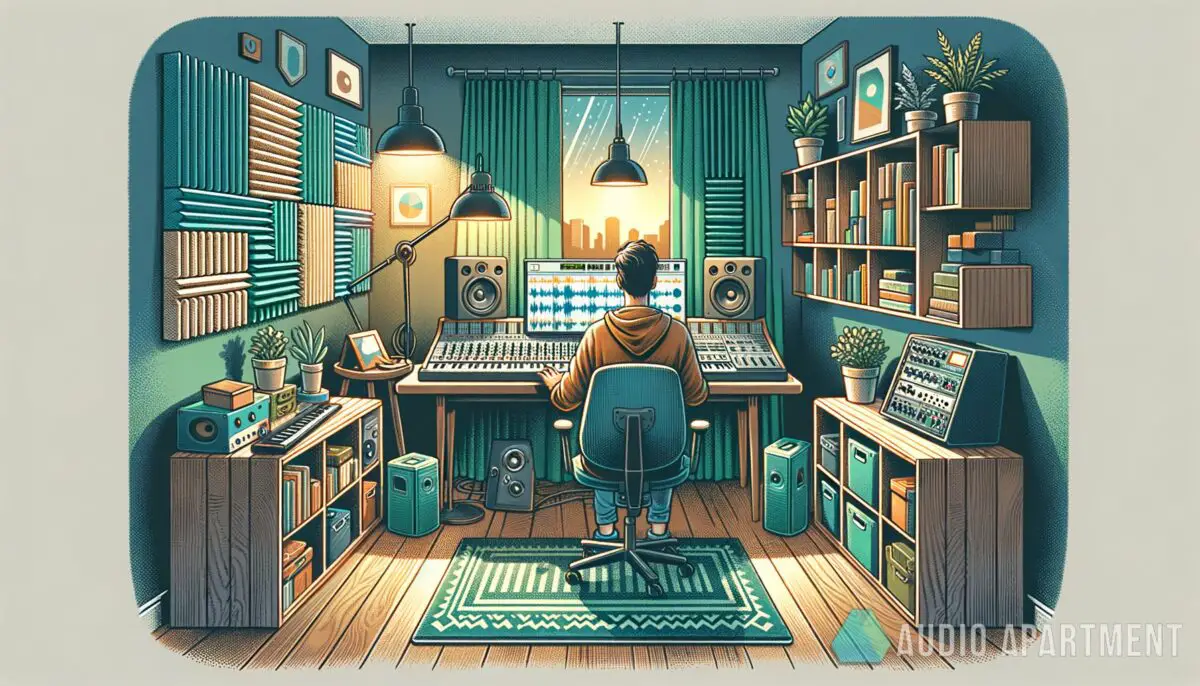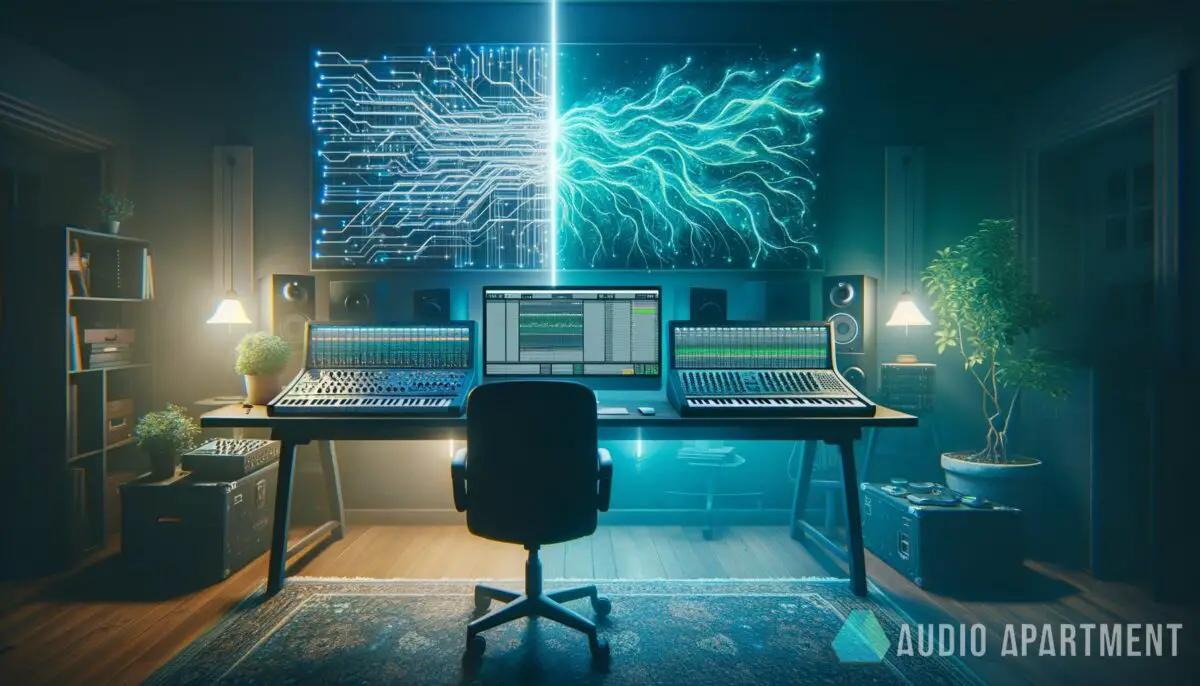When recording vocals, many people are often left wondering if they should record them in mono or stereo. Many people are also unsure how to record vocals to get the best results. So should vocals be recorded in mono or stereo?
In this article, I will cover recording in mono vs. stereo and provide some tips on recording vocals, so you can get the best audio for your projects.
Is it better to record voices in mono or stereo? When only one vocalist is present in the voice booth, it is best to capture the performance in mono. However, if you plan on recording a band or choir, stereo is the way to go.
What is mono?
When talking about sound, the word “mono” (or “monaural” or “monophonic sound”) means that there are only two channels and a single entity, so the word is shortened to “mono.” The point of monophonic music is to have a single, dominant sound.
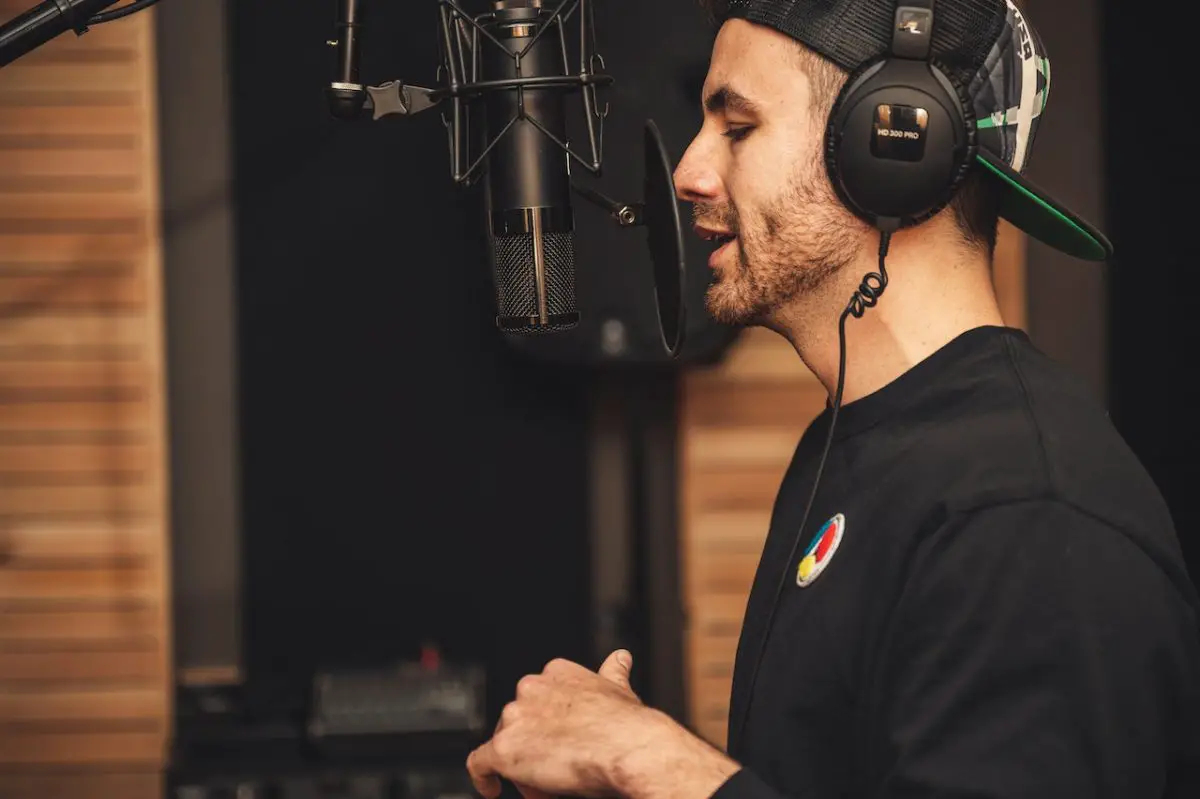
Direct-in instruments (such as bass, electric guitar, or keyboard) and vocals are recorded in mono. Yet a mono recording may be given a stereo effect to make it seem more expansive.
AKAI Professional MPK Mini MK3

AKAI Professional MPK Mini MK3
What is stereo?
Stereo, often known as stereophonic sound, is the term used to describe audio that uses multiple input and/or output channels. Stereo sound gives the impression of depth and width when it is used to record or make music. Two signals are sent by stereo channels, one for each speaker.
This method employs two channels, one for the left and one for the right speakers. Because the vast majority of audio systems currently offer stereo signals, you may employ stereo channels to generate directionality, perspective, and space and benefit from its sound.
With stereo, each of your ears receives a signal distinct from the signal received by the other ear. With mono, both ears receive the same signal.
Should you record vocals in mono or stereo?
Below are some tips and things to consider before deciding whether you will record vocals in mono or stereo.
- If you only have one vocalist, record him in mono. If you have two or more vocalists, you should record them in stereo.
- You should consider how you want your vocals to sound. When you record vocals in mono, they sound more forceful, clear, and forward. Furthermore, recording vocals in stereo produces a wide, spacious, and gentle sound.
- You record one singer in mono because he can only make one signal. As a result, even if you record him in stereo, there will be no distinction between the left and right channels, rendering the stereo recording process pointless.
- When recording numerous items, however, you should record in stereo to use the variances in the left and right channels of the individual elements and generate depth.
Nonetheless, there may be times when recording one performer in stereo is actually beneficial. For example, try capturing the lead singer in stereo if you’re recording in a room with unusual acoustics.
Stereo recordings that sound great in stereo sound terrible
in mono due to phase cancellation difficulties
However, remember that this will complicate the mixing process and may result in some phase cancellation issues, so proceed with caution. Stereo recordings that sound great in stereo sound terrible in mono due to phase cancellation difficulties.
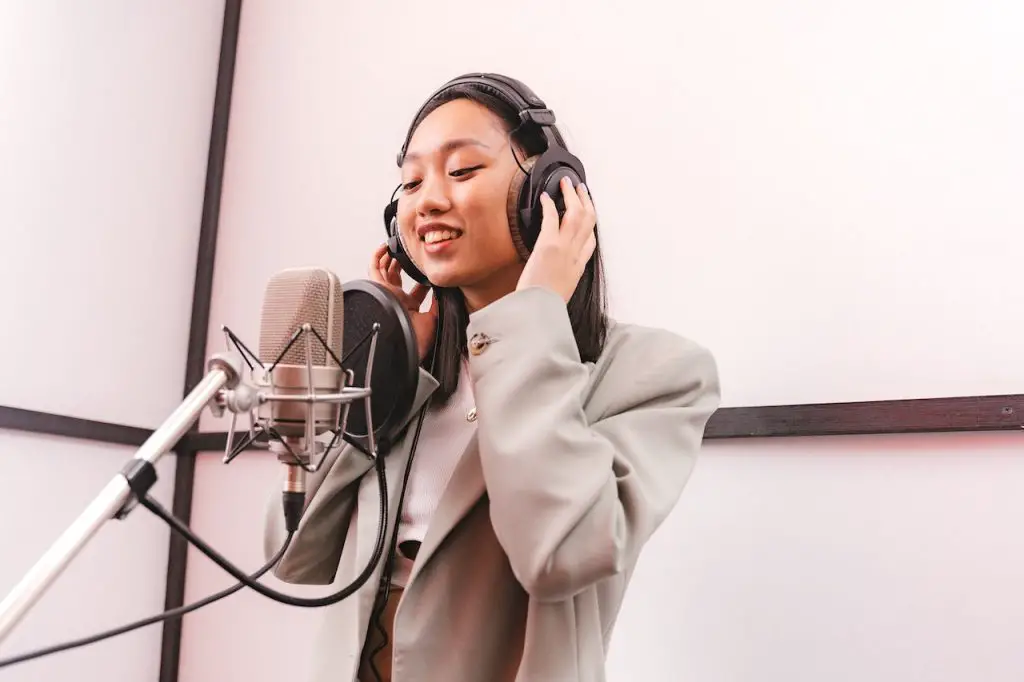
Which one is better, mono or stereo?
Mono is preferable for intimate and personal voices, while stereo is better if you want the sound to expand; but, in this day and age, you can achieve that type of vibe with effects such as reverb and delay.
If you want to record the vocals as part of the ambiance, record in stereo because it’s difficult to reproduce that sense of space, direction, volume, and proximity with effects or plugins. For this reason, stereo recording is used in genres such as jazz.
A jazz singer’s voice interacts with the toom acoustic, creating an atmosphere and reverberation that must be represented in the recording. When a singer is accompanied by an instrument, close mics for the instrument and the vocalist are frequently used, with ambiance mics placed further away.
Several handheld recorders can record in stereo, using two built-in microphones to capture sound. Using the built-in microphones, you can save useful information to the left channel while capturing other sound information to the right channel.
If you want even more tips and insights, watch this video called “Should You Record VOICE In Mono or Stereo??” from the Dark Corner Studios YouTube channel.
Frequently asked questions (FAQ)
Do you still have questions? Below are some of the most commonly asked questions about mono and stereo recording.
Should you mix vocals in mono or stereo?
When it comes to vocal songs, the mix is tailored to put the spotlight squarely on the main vocalist. In most cases, the dry lead vocal signal is mixed in mono, while the vocal effects, such as reverb and delays, are mixed in stereo.
Should I record dialogue in mono or stereo?
As a rule of thumb, monophonic recordings are used when there is only one sound source to capture, such as speech. If you want to record in stereo, you’ll need a stereo microphone or at least two microphones set up in stereo. For podcasting, you won’t need something so technically advanced.
Do mono records sound better?
When listened to on a turntable, the sound from a mono record is balanced in the center, creating a fuller, more resonant sound than would be possible with stereo playback. In addition, when listening to stereo vinyl records, the music can move and split around you, creating a sense of space.
Conclusion
The outcome of the recording will depend on the quality of your equipment, audio editing software, and how you perform. While it is true that stereo recordings have a richer sound, sometimes mono works just as well. If you are unsure which one is better for your voice, try making two recordings with the same technique. Use this for your voice track if one sounds great and crystal clear! If not, record another version in mono to get better results.
This article covered what a mono is, what a stereo is, and what a mono vs. a stereo recording is. Here are some key takeaways:
Key takeaways
- The word “mono” (or “monaural” or “monophonic sound”) means that there are only two channels and a single entity, so the word is shortened to “mono.”
- Stereo, often known as stereophonic sound, is the term used to describe audio that uses multiple in or output channels.
- For a mono recording, just one microphone is used on a single audio track.
- Two microphones are used to make a stereo recording.
- Stereo recording can give you a wider or more focused sound, depending on how much panning is applied to the recordings.
So, when recording, which one works best for you? And did I cover everything you wanted to know? Let me know in the comments section below (I read and reply to every comment). If you found this article helpful, check out my full blog for more tips and tricks on music production. Thanks for reading, and never stop making music.

